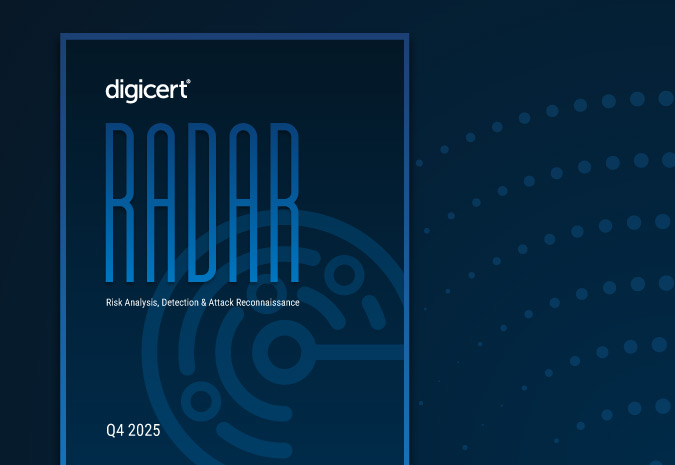
Last updated: August 2023
Quantum computing has the potential to be “as revolutionary in the 2020s as smartphones were in the 2010s,” according to current strategists. The benefits of quantum computing will extend to all aspects of society. Quantum computing will quite literally change the world in various sectors including privacy, finance, healthcare, entertainment and technology.
However, the disadvantages of quantum computing include breaking current encryption systems, which could leave doors open for data theft if organizations are not prepared to transition to cryptography to post-quantum algorithms. Without proper security, many of the promised benefits of quantum computing will fail. At DigiCert, we are innovating solutions to help prepare for the transition to post-quantum cryptography and educating organizations on how to get ahead of coming security challenges. This article will cover the potential implications of quantum computing on society and how organizations can prepare now.
Quantum computing’s impact by sector
Quantum computing will be used for a variety of innovations and calculations across all industries that were not possible with previous computers. Quantum computers have potential to benefit society in various ways, including making smarter investment decisions, developing drugs and vaccines faster and revolutionizing transportation. However, one disadvantage of quantum computing is that it could break current cryptography. Here is what the experts are saying about how quantum computing may impact society in each industry.
Healthcare
The benefits of quantum computing for healthcare include increased speed to develop vaccines and pharmaceuticals, helping to diagnose patients earlier and personalizing treatment. Developing new drugs is a slow process, and as we saw with the coronavirus vaccine, it can only be sped up so much with current processes. Part of the reason it takes so long is that scientists must develop molecules to test their interactions with other molecules; however, with quantum computers, scientists will be able to simulate molecules for testing. Quantum computers will give scientists and extremely precise simulation of even single molecules.
Finance
According to some studies, the finance sector stands to benefit the most from quantum computers in the short term. The first benefit of quantum computing for finance is the ability to calculate outcomes in the stock market that were previously too random and numerous to calculate. Investors increasingly want more accurate risk assessments under various potential scenarios, which quantum computers will be able to handle. Additionally, when calculating loans and portfolios, quantum computers will offer more precise calculations of credit, which will enable better lending decisions.
Climate forecasting
Quantum computers could also potentially predict the weather. According to a PBS interview with an MIT professor, “Currently, a classical computer might take more time than it actually takes the weather to evolve to predict the weather.” This improved climate forecasting could impact many other industries that are weather-dependent, including transportation, food production and more. In the United States, weather affects nearly 30% of GDP, either directly or indirectly. Plus, weather prediction would also allow for more time to prepare for disasters.
Travel and transportation
Quantum computing, combined with AI, will benefit travel and transportation through traffic signal optimization, developing autonomous vehicles, air traffic control and more. Although it may take a few years to reap the fruits of quantum computers in transportation, they have the potential to revolutionize the industry. Quantum computers will be able to calculate optimal traffic routes quickly, reducing congestion and ensuring faster delivery for cargo. For companies like Amazon and FedEx, this increased efficiency could mean a profit increase of up to 600%.
Additionally, quantum computers may help quicken the development of autonomous vehicles, which must be trained through AI. Currently, it can take weeks or months with the world’s fastest computers to train AI algorithms, but with quantum computers that development could be exponentially faster.
Quantum computers will impact society in other industries as well, including media and entertainment, consumer goods and insurance. However, quantum computers will also disrupt privacy and cybersecurity with potentially serious negative consequences if organizations are not prepared.
Privacy/security
Perhaps the most imminent impact of quantum computers on society will be in regard to digital security and privacy. Quantum computers will be able to break current cryptographic algorithms because they can perform exponentially more factors than current computers. This means that classical encryption methods will be vulnerable to quantum computers and there is already a quantum algorithm developed that could do just that: Shor’s algorithm.
In a DigiCert study, 71% of IT professionals reported knowing the threat quantum computing poses to encryption, yet how well organizations understand this threat varies, and there are equally wide variations in the levels of preparation. To close that gap, DigiCert is currently working to innovate tools and products to better equip our customers for the impact of post-quantum cryptography.
Don’t wait to prepare for the implications of quantum computing
Quantum computing could easily become a reality within the next five to ten years. In 2020, quantum computers grew even closer to a reality, and in 2021, development and research continue to further the reality of quantum computers in the near future. There is currently a race between researchers and organizations to develop quantum computing as quickly as possible. But there’s also a race between your organization’s cryptography and quantum algorithms, in which you do not have any slack time.
DigiCert is actively collaborating with industry experts to develop solutions for post-quantum cryptography. For instance, we participate heavily in the IETF hackathons where PQC experts, including ours, compare their implementations of post-quantum protocols against each others in order to test how they work and interoperate. Additionally, we provide a post-quantum cryptography maturity model to better understand the treat of PQC and how your organization can prepare.
Stay tuned to our blog or email pki_info@digicert.com for more information.





